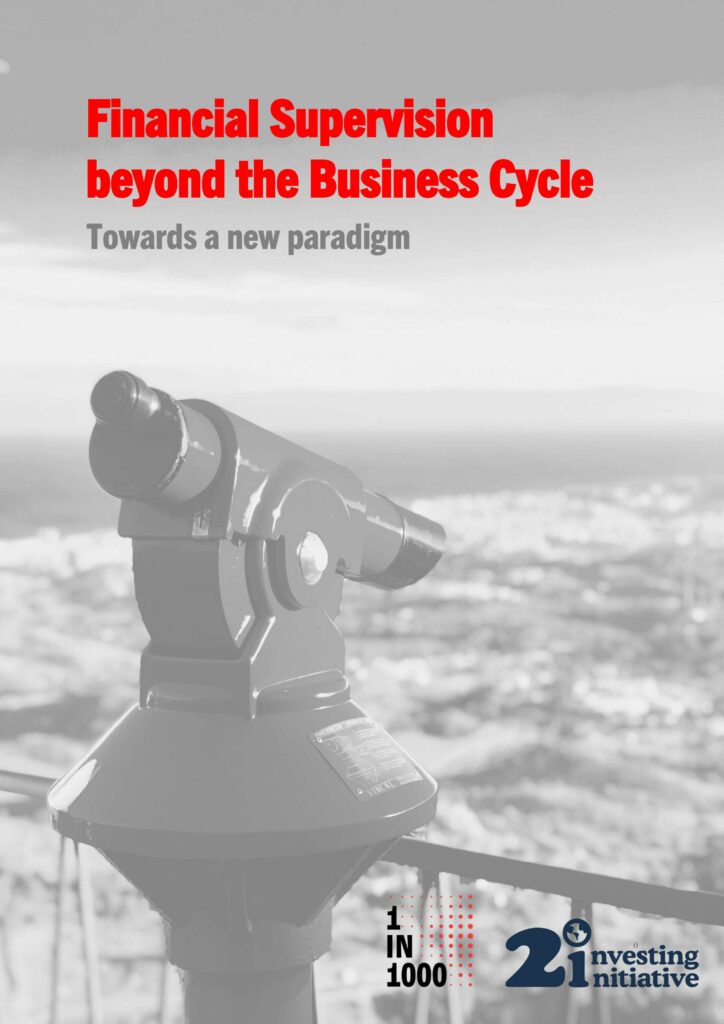At the turn of the decade, a specific class of risks are coming increasingly into focus – long-term risks (LTRs). Pandemic, climate change, and social resilience represent major threats both to economies and sound and stable financial markets. This paper explores both the extent to which these types of risks are on the radar of financial supervisors and central banks, and mechanisms to drive financial supervision “beyond the business cycle”.
To this end, the paper reviews over 2,000 speeches, reports, and press releases as well as other public documentation such as Financial Stability Reports across eight major central banks (CBs) in the Global North & South. It presents an audit of the risk management activities of the eight central banks – categorized into measuring, monitoring and mitigation activities – and comes to the following conclusions:
- Most quantitative measuring activities – in the form of stress testing – do not extend beyond the business cycle. The focus of those CBs that include LTRs is limited to climate change, and the regulatory use of climate stress tests remains unclear.
- Monitoring of LTRs – tracked through Financial Stability Reports – is mostly backward and not forward-looking. The most monitored risks are those LTRs that recently materialized, such as Covid-19.
- Mitigation policies, such as decarbonizing monetary policy, or setting green capital requirements rarely consider LTRs. Even though we argue that mitigation policies are the most important step of risk management, CBs – in particular CBs of the Global North – do not have mitigation policies in place that included LTRs.
The way forward
- Having identified long-term risk management gaps, the paper takes a step back and discusses a required shift in thinking needed to address these gaps.
- As for the required shift, the paper calls for capacity-building – such as implementing precautionary measures and supporting effective policy coordination – in order to better prepare for long-term risks.
About our funders: The program is part of the International Climate Initiative (IKI). The Federal Ministry for the Environment, Nature Conservation and Nuclear Safety (BMU) supports this initiative on the basis of a decision adopted by the German Bundestag. This research has been funded by the International Network for Sustainable Financial Policy Insights, Research and Exchange (INSPIRE). INSPIRE is a global research stakeholder of the Network for Greening the Financial System (NGFS); it is philanthropically funded through the ClimateWorks Foundation and co-hosted by ClimateWorks and the Grantham Research Institute on Climate Change and the Environment at the London School of Economics. This report also received funding from EIT Climate-KIC.




